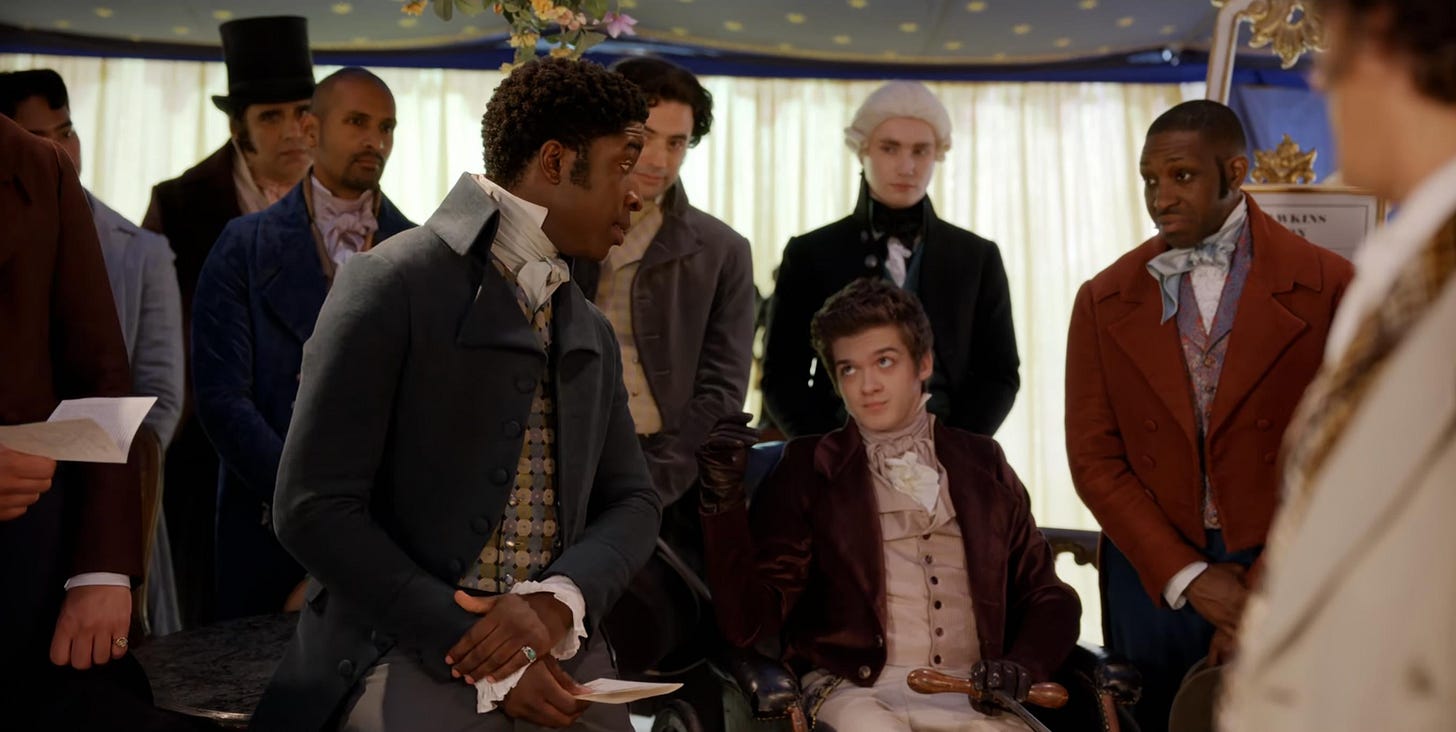The term access and inclusion has been around for a long time in all working industries, including HETV. But it wasn’t until Jack Thorne’s moving and powerful MacTaggart Lecture at Edinburgh TV Festival in August 2021 that the TV industry started to listen.
TV has historically lacked when it comes to truly authentic D/deaf, Disabled and/or Neurodivergent (DDN) individuals and stories, but in the past few years we’ve started to see a shift away from inspiration porn and inaccurate portrayals to more nuanced and fair on-screen representation. Incredible stories have come to life, from the Oscar winning short film An Irish Goodbye; to films like A Quiet Place, and even incidental casting in hit shows like Sex Education and Bridgerton. Nighttime entertainment shows have delivered too, with outstanding celebrity dancers on Strictly Come Dancing, as well as contestants on Love Island and I’m A Celebrity. Ruth Madely alone has featured in episodes of Doctor Who, Years and Years, The Long Shadow and Then Barbara Met Allen.
With all these vital pieces of media and talent visible on screen, why are we still lacking in representation off screen? — with only 5-10% of workers in the UK Television industry identifying as DDN. This shocking statistic combined with industry horror stories about access has paved the way for the role of Access Coordinators in our industry.
The role of the Access Coordinator is to promote more inclusive practices and work with DDN individuals to ensure access requirements are being met in a fair and empowering way. This could be the lead cast member or an accountant in the back office somewhere. It doesn’t matter because this role was designed to help anyone who needs reasonable adjustments to thrive in their work lives.
Since 2021 two cohorts have gone through ScreenSkills training and we are starting to see the role become truly embedded within film and HETV production.
As Access Coordinators, we are on the front lines of a huge cultural shift. It's incredibly exciting to be standing among my fellow ACs to create tangible, equitable change in the industry and challenge the barriers that leave so many unable to participate equally in it.
Together, we are shaping a brand new, inclusive, and accessible way of working that will change our perception of working in TV & Film for generations to come.
- Ant Lightfoot, Access Coordinator
In an ideal world there would be no such thing as funding restrictions, time constraints, or long working hours — but we’re in this industry because we love what we do. Yet, it continues to shut many talented individuals out because it’s unable to meet basic access requirements, like when there are no accessible honeywagons available, or not allowing for more flexible working styles.
As Access Coordinators, we’re here to help you identify access requirements and find ways to make them achievable for all productions. It’s going to take time for DDN individuals to trust the industry enough to come forward with access requirements and request what they truly need, so we’re also here to help start that conversation by up-skilling our crews and showing them how to create more inclusive work environments. Adjustments can often be small and free. Perhaps it’s a note in your email signature telling people to reply at their own pace. Or maybe when you post a job you’ve written a line encouraging DDN people to apply.
The role is still in its infancy but the call to action has been heard loud and clear. I asked my fellow Access Coordinators what they hope to see change for the role in 3 years’ time, here’s what they had to say.
I hope to see it everywhere. I hope it's been normalised as a role in the way that Intimacy Coordinators now are, and for it to be as well respected, too. I hope people realise our importance and see our value.
- Leah Rachel, Access Coordinator
I hope to see the role implemented on every production as standard, much like other departments. With disability and accessibility training for all!
- Abbie Hills, Access Coordinator
That [access is] a line on every budget and embedded into production properly, not just an afterthought or an ad hoc arrangement. And that we continue to normalise accessibility — and the fact that it benefits everyone — so that people aren't worried about disclosing what makes them who they are.
- Sally Lisk-Lewis, Access Coordinator
The normalisation of this role is groundbreaking, and I believe will continue to have profound ripple effects throughout the world.
- Ella Glendining, Access Coordinator
The power of this role and its potential cannot be overstated. The industry has failed Disabled people for too long and now is the time for action. Whether that’s hiring an Access Coordinator or starting smaller, like looking at your daily practices and asking how you could make your operation more inclusive to all.
Access Coordinators can be found all over the UK. You can find them through The Talent Manager, ScreenSkills, TripleC/DANC, Casarotto Ramsey and Associates, Sara Putt Associates and VisABLE People. We’re here and ready to help you on your journey through access no matter how big or small your production may be.
Disabled voices deserve to be heard, and you deserve to hear them.
I’d like to leave you with one final thought that I hope you take away. Disabled isn’t a dirty word or something to be feared. Embrace the word and all it means because being disabled isn’t a definition, it’s an adjective and only one part of who the individual is.
About the Author
Beth is a white disabled woman and is the first and only in-house Access Coordinator in the UK working in the television industry. She is currently working across all ITV Studios drama labels, covering up to 7 productions at a time. Before joining ITV Studios, Beth was a freelance Access Coordinator working across scripted, unscripted and live events.




